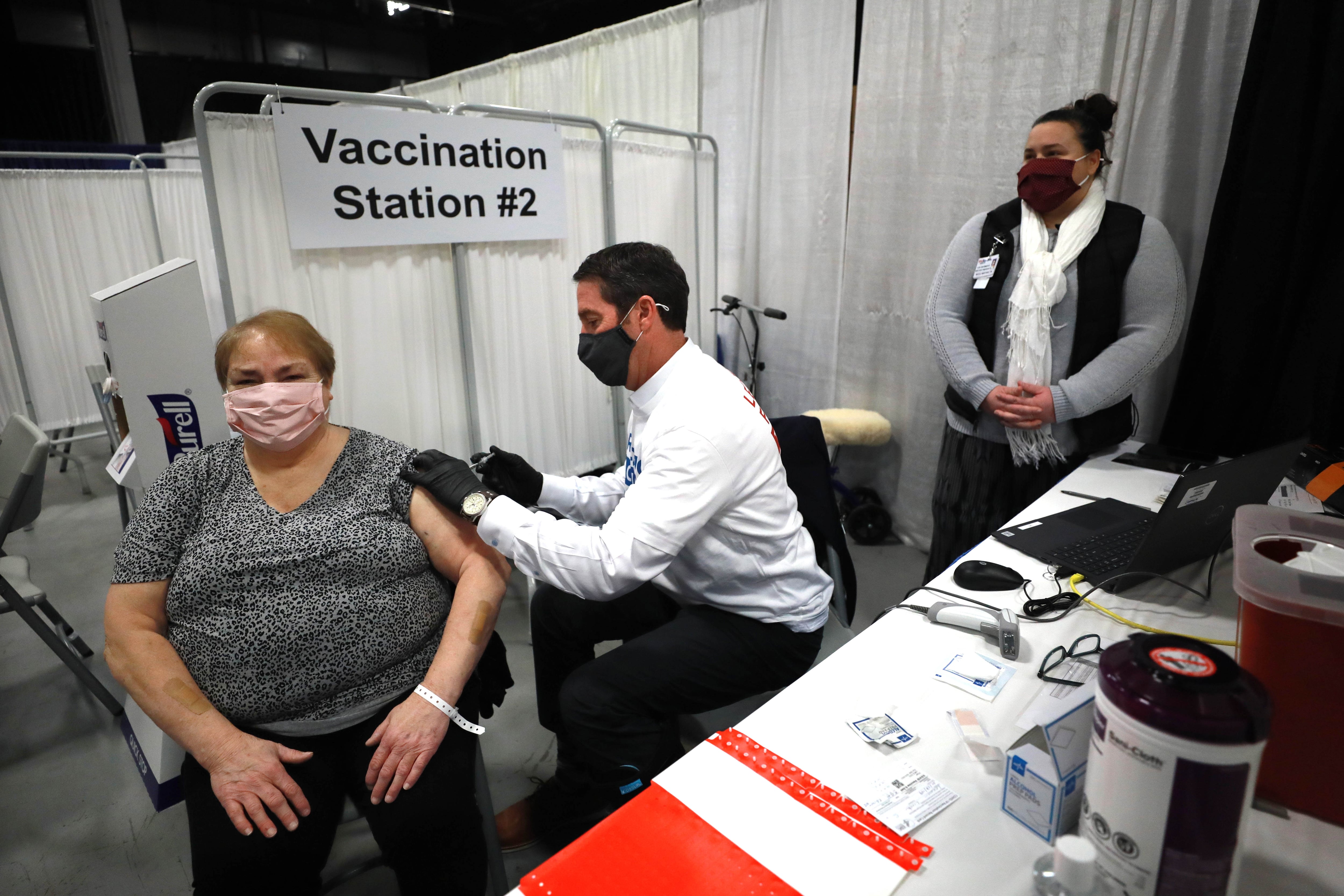Every Newark schools employee should be able to receive a coronavirus vaccine by April, when schools are slated to reopen, Superintendent Roger León said.
The plan is for teachers and other district staffers who want the vaccine to get the first dose in February and the second in March, León said Tuesday. That would ensure employees have the opportunity to get vaccinated before school buildings are scheduled to reopen on April 12, clearing the way for students to return to classrooms part time after more than a year of remote learning.
“If everyone that wants the vaccine that is an employee is vaccinated, then technically we could have all staff vaccinated by April,” León said at a Saturday board meeting. “That would be the ultimate goal and objective.”
Meanwhile, some schools could resume in-person instruction even before April, the superintendent added. Without providing any details, León said the district is exploring a pilot program that would allow an unspecified number of school buildings to reopen prior to April.
“We’re extremely excited about the potential of this pilot and us actually starting it in the coming weeks,” he told the school board Saturday.
The district’s vaccination timeline will depend on several factors outside its control.
New Jersey has started vaccinating health care workers, nursing home residents, emergency responders, seniors, and people with certain high-risk medical conditions — but not educators. The state’s more than 100,000 public school teachers, along with other essential workers, will be eligible in the next phase of vaccine distribution.
During an interview on CNN Wednesday, Gov. Phil Murphy said that “educators are next up to bat,” but did not say when the next distribution stage will start.
Even after teachers and other school workers are eligible, shots might not be immediately available. Nearly 5 million New Jersey residents are currently eligible for vaccines, yet the federal government has distributed just over 1 million doses to the state, according to the Centers for Disease Control and Prevention. Murphy, who has repeatedly called on Washington to send more doses, said Wednesday that the Biden administration would be ramping up the state’s allocation.
But New Jersey’s vaccine rollout has also been sluggish. Some residents have reported difficulty signing up for shots and scheduling second doses. So far, the state has administered just over 642,000 doses, trailing behind dozens of other states in the number of shots given per 100,000 residents, according to the CDC’s tally.
Then there is the question of teachers’ willingness to get the vaccine.
The district has not said whether it has surveyed employees about their plans to get vaccinated, nor has it said whether it will mandate vaccinations. However, the Newark Teachers Union informally surveyed members on social media, said union president John Abeigon. About 80% of the roughly 1,000 people who responded said they planned to get the vaccine when it’s available.
“I’m extremely confident” that most members will choose to get vaccinated, Abeigon said. “I have a highly educated, highly skilled professional membership.”
Still, some Newark residents and district employees have expressed doubts about taking the vaccine right away. At a virtual town hall meeting in December, Superintendent León said he hadn’t made up his mind about getting vaccinated.
“I think that because of the role that I play in our community, it’s extremely important that I make a statement about it,” he said during the forum hosted by the Alliance for Newark Public Schools. “I’m still thinking and right now when I’m ready to make that decision, I will make it.”
Vaccinating staff members does not assure a safe school reopening, health experts caution.
While the vaccines are highly effective at protecting people from COVID-19 illness, it is not yet clear whether they prevent transmission. In addition, the vaccines have not been approved for young children.
That means schools must continue all the recommended strategies to mitigate virus spread — mask wearing, social distancing, hand washing, and air ventilation — even after staffers start getting vaccinated. The Newark school district has been stockpiling masks, hand sanitizer, and cleaning supplies and publicizing its safety protocols in anticipation of reopening classrooms, even as reopening has been delayed multiple times this school year.
The other factor affecting when schools reopen is the level of virus spread in the community.
The pandemic has ravaged Newark, which has reported more than 27,000 cases and 816 deaths due to COVID-19. But a recent surge of infections has started to ease, Mayor Ras Baraka said Monday. The city’s test positivity rate on Jan. 15 was just over 13%, he said — a roughly 7 percentage point decrease from the previous week.
“That is a large decrease,” Baraka said. “We want to continue to do what we’re doing.”






